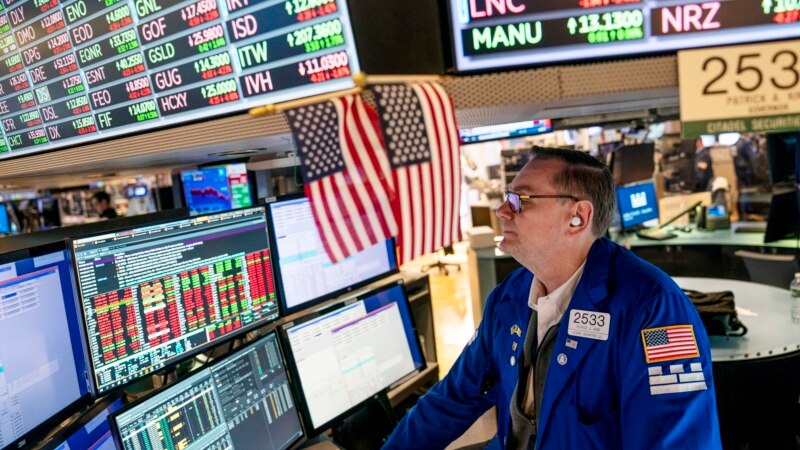
Stocks closed sharply lower Wednesday on Wall Street as dismal results from Target renewed fears that inflation is battering U.S. companies. The S&P 500, the benchmark for many index funds, fell 4%. Target lost a quarter of its value, dragging other retailers down with it, after saying its profit fell by half in the latest quarter as costs for freight and transportation spiked. That comes a day after Walmart cited inflation for its own weak results. The Dow Jones Industrial Average dropped 1,164 points, or 3.6% and the tech-heavy Nasdaq pulled back 4.7%. Treasury yields fell as investors sought safer ground. "A lot of people are trying to guess the bottom," said Sam Stovall, chief investment strategist at CFRA. "Bottoms occur when there's nobody left to sell." Retailers were among the biggest decliners after Target plunged following a grim quarterly earnings report. The weak reports stoked concerns that persistently rising inflation is putting a tighter squeeze on a wide range of businesses and could cut deeper into their profits. Technology stocks, which led the market rally a day earlier, were the biggest drag on the S&P 500. Apple lost 5.9%. All told, more than 95% of stocks in the S&P 500 were down. Utilities also weighed down the index, though not nearly as much as the other 10 sectors, as investors shifted money to investments that are considered less risky. The disappointing report from Target comes a day after the market cheered an encouraging report from the Commerce Department that showed retail sales rose in April, driven by higher sales of cars, electronics and more spending at restaurants. Stocks have been struggling to pull out of a slump over the last six weeks as concerns pile up for investors. Trading has been choppy on a daily basis and any data on retailers and consumers is being closely monitored by investors as they try to determine the impact from inflation and whether it will prompt a slowdown in spending. A bigger-than-expected hit to spending could signal more sluggish economic growth ahead. The Federal Reserve is trying to temper the impact from the highest inflation in four decades by raising interest rates. On Tuesday, Fed Chair Jerome Powell told a Wall Street Journal conference that the U.S. central bank will "have to consider moving more aggressively" if inflation fails to ease after earlier rate hikes. Investors are concerned that the central bank could cause a recession if it raises rates too high or too quickly. Worries persist about global growth as Russia's invasion of Ukraine puts even more pressure on prices for oil and food while lockdowns in China to stem COVID-19 cases worsens supply chain problems. The United Nations is significantly lowering its forecast for global economic growth this year from 4% to 3.1%. The downgrade is broad-based, which includes the world's largest economies such as the U.S., China and the European Union.
Most Read